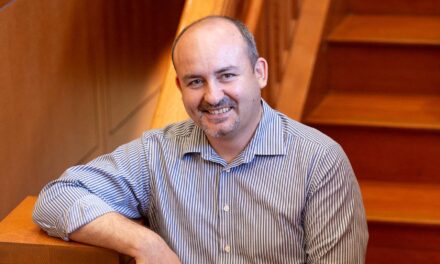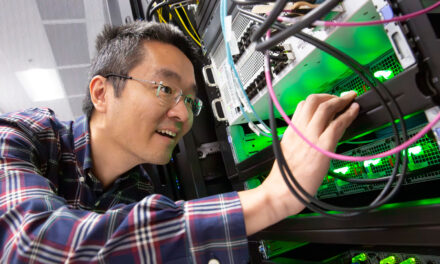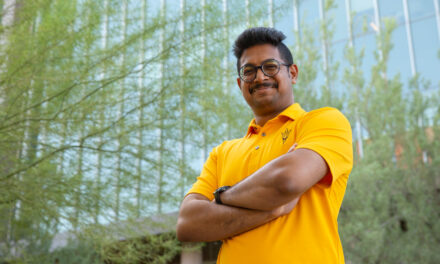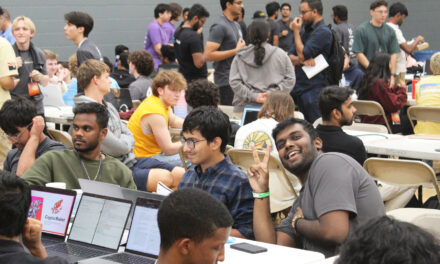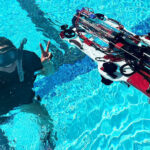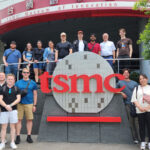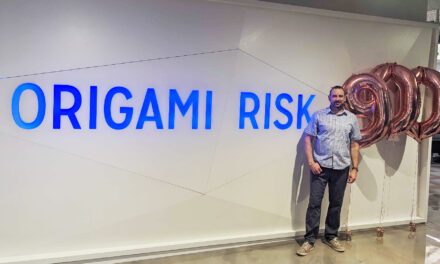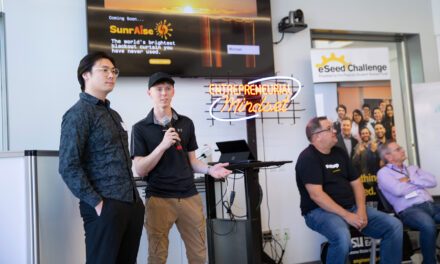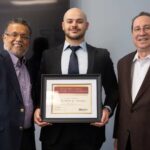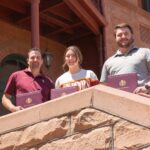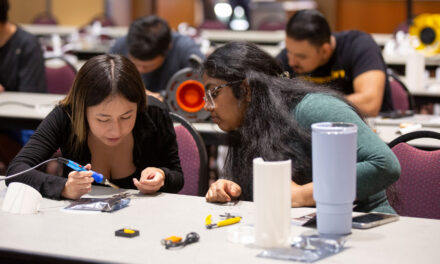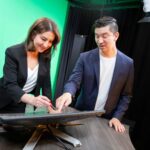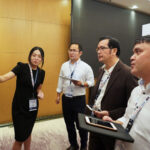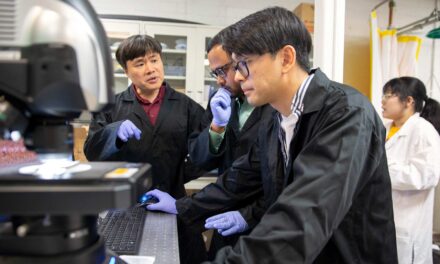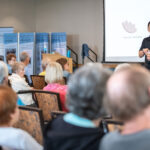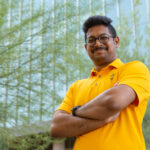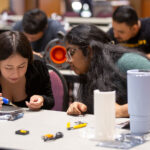
Empowering graduate students for career and life journeys
ASU’s Graduate Student Government president shares his vision for his peers
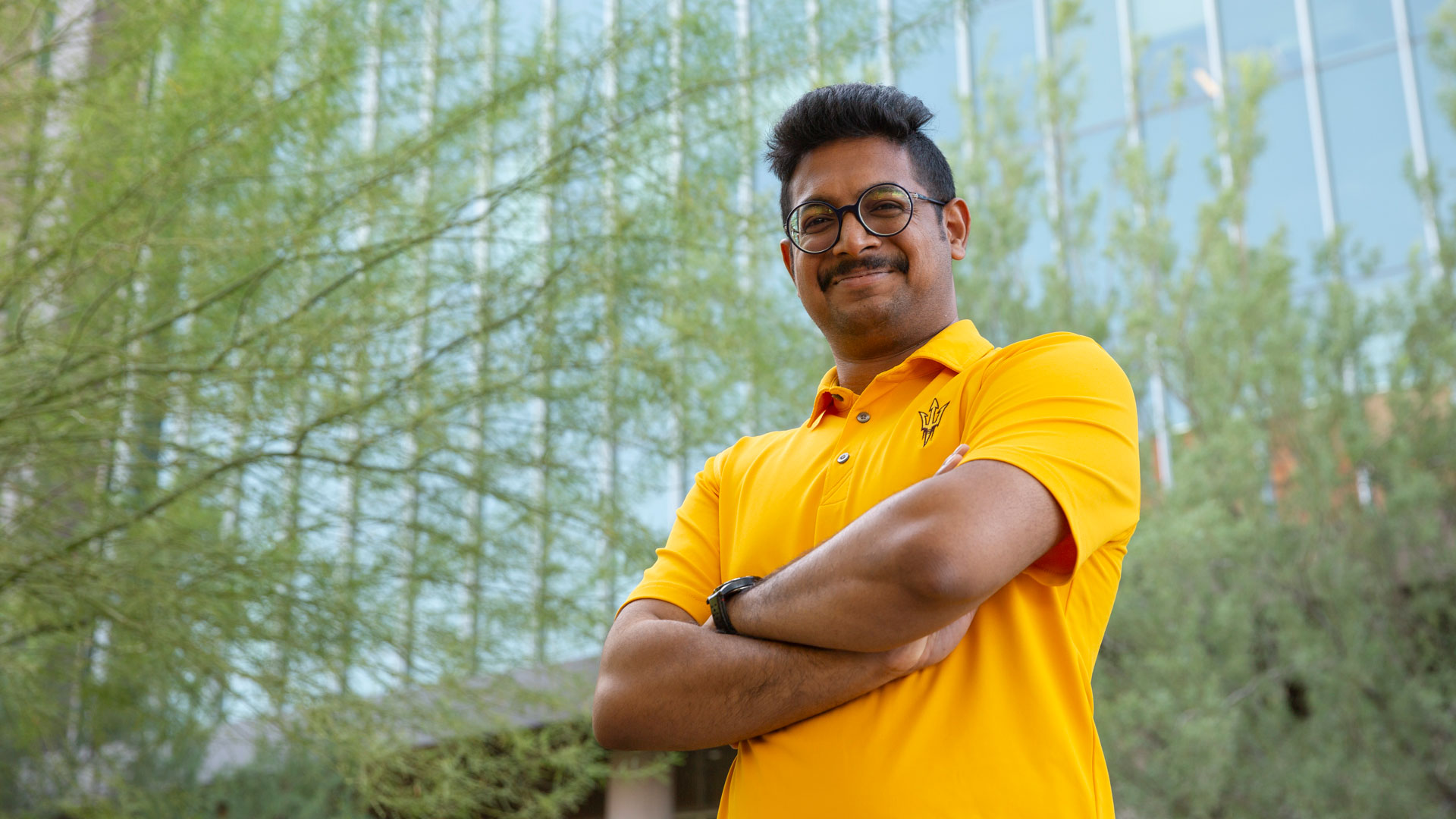
Succeeding in graduate school requires initiative. From filling out the application to walking the stage at graduation, students must overcome countless obstacles, but they are not alone.
Entities such as the Graduate Student Government, or GSG, at Arizona State University, are part of the social infrastructure designed to support and guide students as they work toward their degrees and career paths.
As GSG president for the 2024–25 academic year, Ravi Teja Chopparapu, a doctoral candidate studying civil, environmental and sustainable engineering in the School of Sustainable Engineering and the Built Environment, part of the Ira A. Fulton Schools of Engineering at ASU, aims to connect students to university resources and cultivate a community of independent thinkers and initiators.
“Grad school teaches us independent study,” Chopparapu says. “We learn to take initiative. We, as students, should be the decision-makers for our lives.”
Chopparapu’s interdisciplinary background in engineering and environmental microbiology through his affiliation with the ASU Water and Environmental Technology Center has enhanced his perspective toward advancing the student experience in the Fulton Schools. Below, Chopparapu discusses leadership, taking initiative and his vision for the school.
—
What motivated you to pursue a leadership role?
My parents in India taught me not to wait for anyone to change things for me. Our dining table discussions focused on politics, public service and education. They taught me to raise my voice if I see something is wrong and to push for what’s right. I learned not to follow anyone else, but rather to be a trendsetter by following my instincts and morals.
That’s especially important in research when you’re trying to discover something that isn’t known or established yet. It comes down to being the change you want to see. How has that impacted your ASU experience?
The very first day I came to ASU in December 2021, I was looking for opportunities to invest my time beyond academics. What if every candidate for a job has a 4.00 GPA? I needed to reflect on my values and develop the things that made me unique. I knew the identity and community I wanted to build, and I realized I could do that on a university scale through GSG.
What aspects of your perspective and past experiences have prepared you for the position?
Working in environmental engineering with a mechanical engineering background and a water treatment focus has taught me to think in multiple directions. For example, the mechanical engineering designs can generate pollution and impacts must be managed through sustainable procedures and eco-friendly designs. Chain reactions are prominent outside the lab, too.
When it comes to leadership, we deal with people who are like-minded and those who are not. I want the students to be able to observe the value of leadership from me as the person who is leading them. I understand the responsibility, and I embrace the challenge.
You’ve set some impressive goals for your presidency. What are you prioritizing during your term?
The Council of Presidents, or CoP, identifies a list of priorities — such as improving mental health and access to resources — that the administration for the year should address. I’ve found that many first-year and international students don’t know where to find a lot of things. During my tenure as part of CoP, I want to accelerate the learning curve for accessing resources and learning life skills.
We are a nationally ranked university, so I’ve started saying, “Why can’t we have this?” During a CoP meeting with President Michael Crow and other members of ASU executive leadership, the idea of making swimming a more accessible skill for students was proposed. Why can’t we make this essential survival skill more structured and accessible to all students?
Most full-time jobs and internships require applicants to have a driver’s license, even when they aren’t likely to drive. Why don’t we have clear pathways for students to meet this requirement? We need to have these things accessible so students can develop skills early and don’t face barriers.
You put a high value on independence and being prepared. How do you plan to prepare such a large and diverse group of people?
There are a lot of potential directions to take while leading more than 31,000 students — one of the largest graduate colleges in the world. I want to give people the chance to develop skills that prepare them to solve real-world problems and think independently. There is no one solution for everyone, but I can demonstrate values and morals through leadership to cultivate skills and values in others. I want students to value initiative so they can explore their lives and the resources available to them.
How will you measure if you’ve been successful?
Through student engagement. If we want proof that students are living their lives and engaging in the community, we will see it through participation. We have a budget of about $2 million for the academic year where the majority goes to professional development grants and student engagement activities. I want to see those opportunities get used. It’s the students’ money, so we want to see it spent on student initiatives.
More students should raise their voices and think bigger. When students engage, it means we are doing something right. If they share feedback, it shows their passion for improving the community. Praise and constructive criticism reflect their dedication to making a difference and their belief in the potential of positive change.
Is there anything you want every student to know?
Stand on your values and be persistent.
Your values will guide you to know yourself and what you believe in. The first step isn’t having an opinion — it’s taking the initiative to be open to the world. So, stand on your values and you will know yourself. Success comes from resilience and staying true to your principles, even when facing challenges.


